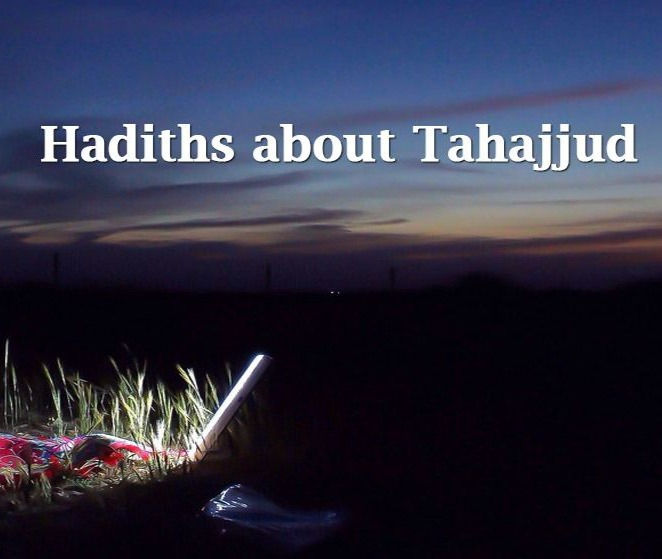What is Qiyam Al-Layl?
- Al-Mohsinun

- Jan 28, 2021
- 4 min read
Qiyam Al-Layl is Tahajjud or the night prayer. It extends from the time immediately after Isha until the Fajr.

Allah(SWT) says in the Quran:
اِنَّا سَنُلۡقِىۡ عَلَيۡكَ قَوۡلًا ثَقِيۡلًا اِنَّ نَاشِئَةَ الَّيۡلِ هِىَ اَشَدُّ وَطۡـاً وَّاَقۡوَمُ قِيۡلًا ؕ اِنَّ لَـكَ فِى النَّهَارِ سَبۡحًا طَوِيۡلًا ؕ وَاذۡكُرِ اسۡمَ رَبِّكَ وَتَبَتَّلۡ اِلَيۡهِ تَبۡتِيۡلًا ؕ رَبُّ الۡمَشۡرِقِ وَالۡمَغۡرِبِ لَاۤ اِلٰهَ اِلَّا هُوَ فَاتَّخِذۡهُ وَكِيۡلًا
Behold, We shall cast upon you a Weighty Word. Surely getting up at night is the best means of subduing the self and is more suitable for uprightness in speech. You are indeed much occupied during the day with the affairs of the world. So remember the name of your Lord and devote yourself to Him with exclusive devotion. He is the Lord of the East and the West; there is no god but He (SWT). So take Him alone for your Guardian. (Surah 73:5-9)
“The night hours that are strongest of tread and most upright of speech." (Surah 73:6)
The night hours referred to here are those that follow the Isha Prayer. This ayah describes these hours as strongest of tread, which means 'more physically exhausting , and most upright of speech ' , which means better rewarding , ( according to Mujāhid).
To overcome the appeal of bed after a long day is exhausting , but it declares the triumph of the spirit in response to God's instructions.
Since the person spending these hours in worship prefers to be in contact with Allah, these hours are most upright of speech, because they give a special taste to Allah's glorification.
They make prayer more enlightening, and supplication more transparent.
They fill the heart with light and happiness that may not be felt in day prayers.
Allah , who created man and his heart, knows how it responds, what it takes in, how it opens to callers, and at which times it is more responsive and better prepared.
When Allah wanted to prepare His servant and Messenger, Muḥammad (peace be upon him), for his weighty message, He chose for him night worship because the night hours are the ones that are strongest of tread, producing the most profound impression, and most upright of speech. Allah knows that during the day he had to attend to different tasks that took up much of his energy.
“ During the day you have a long chain of things to attend to." (Surah 73:7)
Let him, then, do whatever he needs to do during the day, putting in whatever effort was necessary. When the night comes, however, he should devote himself to his Lord, offering prayer and glorifying Him:
“ Therefore, remember your Lord's name and devote yourself wholeheartedly to Him. " (Surah 73: 8)
Remembering God's name does not mean repeating His honoured name verbally , counting with a bead of one hundred or a thousand pieces. Rather, this is a heart - felt remembrance along with verbal mention, or it means prayer and reading the Qur'ān while praying. Wholehearted devotion means concentrating all one's attention on Allah, addressing one's worship to Him, discarding all thoughts and feelings other than the bond with Him. The sürah follows this instruction by making it clear that there is none other than God to turn to:
“He is the Lord of the east and the west . There is no deity other than Him . Take Him for your guardian.” (Surah 73:9)
He is the Lord of all , the One Allah other than whom there is no deity. To devote oneself to Him is to be with the only truth in the universe, and to place one's trust in Him is to place it in the only power in the universe. Such reliance on Him is the natural result of believing in His oneness and His control of the east and the west, or in other words, His control of the entire universe. The Prophet , who is told to stand in order to carry his heavy burden, needs to devote himself wholeheartedly to Allah and to rely on Him only. It is from this that he derives the strength necessary to carry his heavy burden along his long way.
Abu Hurairah (رضي الله عنه) narrated that the Messenger of Allah (ﷺ) as saying: Our Lord who is blessed and exalted descends every night to the lowest heaven when the last one-third of the night remains, and says:
Who supplicated Me so that I may answer him ? Who asks of Me so that I may give to him ? Who asks My forgiveness so that I may forgive him? (Grade: Sahih)
حَدَّثَنَا الْقَعْنَبِيُّ، عَنْ مَالِكٍ، عَنِ ابْنِ شِهَابٍ، عَنْ أَبِي سَلَمَةَ بْنِ عَبْدِ الرَّحْمَنِ، وَعَنْ أَبِي عَبْدِ اللَّهِ الأَغَرِّ، عَنْ أَبِي هُرَيْرَةَ، أَنَّ رَسُولَ اللَّهِ صلى الله عليه وسلم قَالَ " يَنْزِلُ رَبُّنَا تَبَارَكَ وَتَعَالَى كُلَّ لَيْلَةٍ إِلَى سَمَاءِ الدُّنْيَا حِينَ يَبْقَى ثُلُثُ اللَّيْلِ الآخِرُ فَيَقُولُ مَنْ يَدْعُونِي فَأَسْتَجِيبَ لَهُ مَنْ يَسْأَلُنِي فَأُعْطِيَهُ مَنْ يَسْتَغْفِرُنِي فَأَغْفِرَ لَهُ " .
Reference: Sunan Abi Dawud 1315; Book 5, Hadith 66; Book 5, Hadith 1310
Rest Allah knows best.
Source: Quran, In the shade of the Quran






Comments